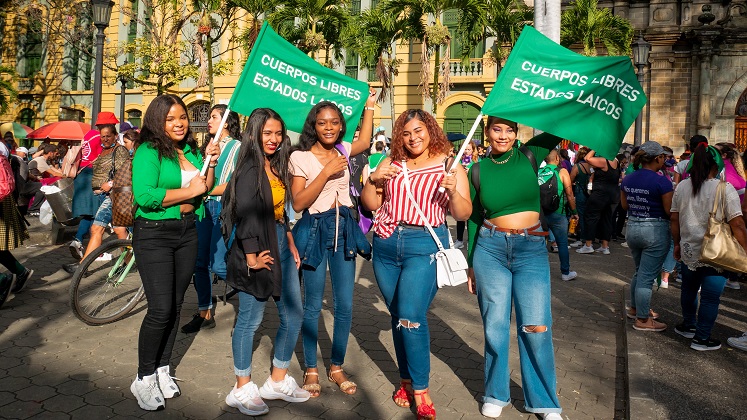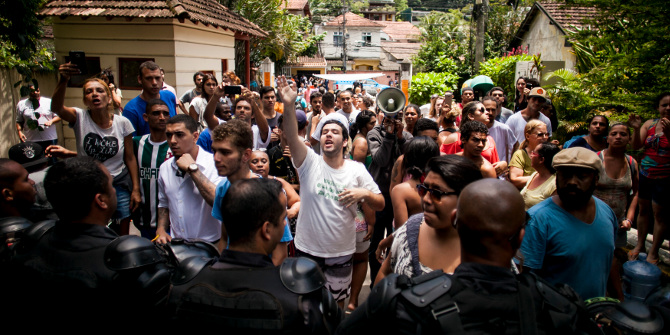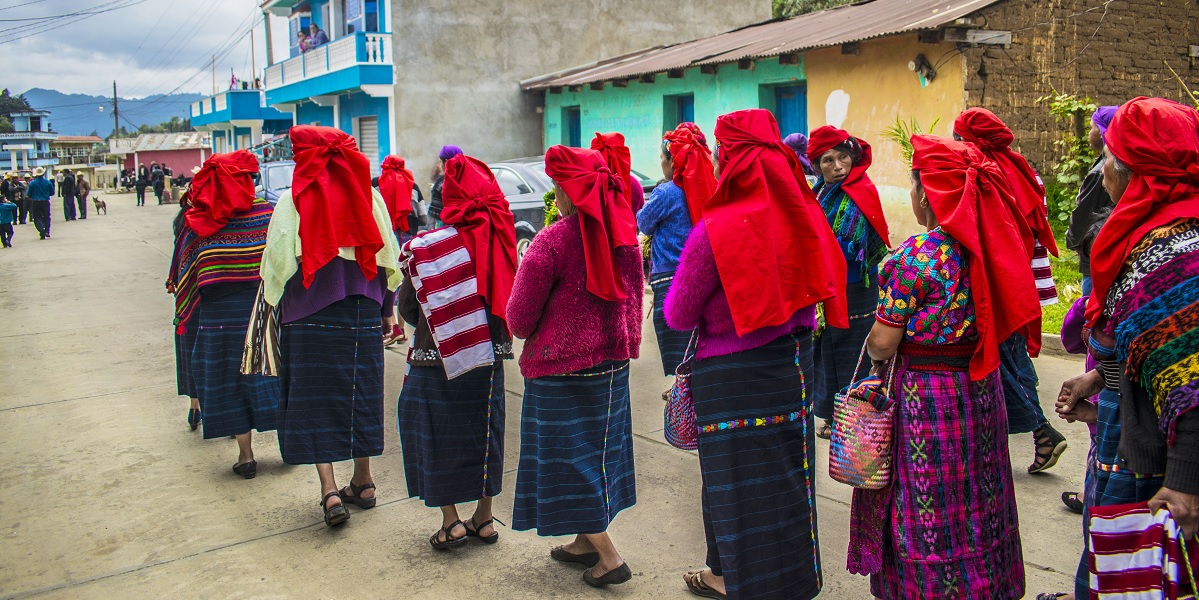Love and social class work together. Intimate bonds can both alleviate or reinforce inequality along class, gender and ethnic lines. In his research, Malik Fercovic-Cerda (LSE) reveals the bonds of romantic partners from different social backgrounds in Chile.
Chile, like most of Latin America, has historically been recognised as a nation with low social mobility due to its high levels of inequality. Indeed, the region has been extensively characterised by the world’s most extreme levels of inequality. Structurally rooted in an agrarian-based society, the institutional legacy of the colonial period, and the slow expansion of education, inequality in Chile has remained persistently high throughout the 20th century. This longstanding trend has consolidated the view that social mobility is negatively correlated with high levels of inequality—a general depiction popularised by Miles Corak’s ‘Great Gatsby curves’, both in the Global North and South.
My own research confirms the strong barriers to upward mobility in Latin America, particularly at the upper echelons. But, beyond the endorsement of this rather grim and conventional account, my work also opens up new avenues for research on class inequality and social mobility. In a recently published article, I examined the under-explored connection between upward mobility and romantic relationships among individuals experiencing long-range upward trajectories in contemporary Chile: those coming from working-class backgrounds and reaching high-status professions, such as law, medicine and engineering.
Against a backdrop characterised by a crucial reliance on family and couple life amid precarious welfare arrangements and very low levels of interpersonal trust, features shared across most Latin American nations, my findings reveal how romantic relationships, notably those forged among romantic partners sharing a similar class origin and upward trajectory, act as key intimate ties helping to mitigate the class dislocation—the persistent lack of sociocultural fit—very often entwined to long-range upward trajectories in highly unequal societies. Significantly, based on the common class trajectory and cultural dispositions shared by this specific type of romantic unions, these findings show how romantic partners play an important part in helping the upwardly mobile to negotiate ties with their class origins and adjust to their class destination, indeed providing multifaceted support throughout their mobility journeys. Thus, I further show, romantic bonds offer to their upwardly mobile couples a ‘refuge’ contributing to sustain a greater sense of ‘ontological security’, particularly for upwardly mobile women.
This research contributes to the scant literature connecting class, upward mobility and intimacy in Latin America and beyond. First, these findings confirm the proposition that upwardly mobile couples function as a ‘partnership of class migrants’, facing together the many challenges and dislocating effects of upward mobility. But my findings also refine this general statement as they show how the role played by romantic partners is highly significant for both the adjustment to their class destination (when navigating elite universities and in the workplace) and negotiating demands and ties with their class origins (especially kin ties) in the Chilean context. As such, they bring into sharper focus the specific institutional settings and ties in which romantic partners provide this support to their upwardly mobile couples.
The gender factor
These findings draw greater attention to the gender dynamics at work in these processes. Compared with their male counterparts, upwardly mobile women are much more disposed to talk about their romantic relationships, and emotional lives more broadly, as part of their mobility journeys. Importantly, this may be a strong indication of their greater personal dependence on their romantic or marital partners, both in economic and emotional terms. While a considerable scholarship demonstrates the relevant role of gender in shaping the mobility experience, this specific gender imbalance remains strikingly under-studied. Future research should consistently probe this finding, alongside further scrutinising whether romantic relationships are experienced (or not) as a ‘refuge’, both for men and women.
My research charts novel ground to explore the role that romantic partners may have in smoothing the adjustment of the upwardly mobile to elite universities and professional workplaces. In this respect, although cross-class romantic unions are particularly scarce in my study, they show how romantic partners from privileged backgrounds can help their upwardly mobile partners to master the complex cultural cues that are crucial to success in high-status professions. Here future research might productively address how the upwardly mobile learn from their romantic ties a new set of dispositions, or habitus, more congruent or attuned to ‘the rules of the game’ of the occupational fields they are crossing or embedded in.
Although emerging from the Chilean case, these reflections call for a new and broad research agenda in the study of class, social mobility and intimacy. Significantly, this should acknowledge that intimate bonds include romantic partners, nuclear and extended kin, and friendships, and that these relationships can both alleviate or reinforce inequality along class, gender and ethnic lines. Importantly, too, this research agenda would gain substantially by the implementation of mixed-methods research and by paying much greater attention to the study of societies in the Global South, particularly in Latin America. To a considerable extent, as my own research attests, this can contribute to challenge or enrich existing knowledge on class inequality, the mobility experience and intimate ties beyond the Global North.
Notes:
• The views expressed here are of the author rather than the Centre or the LSE
• Please read our Comments Policy before commenting
• Banner: Couple in Chile / lovelypeace (Shutterstock)





